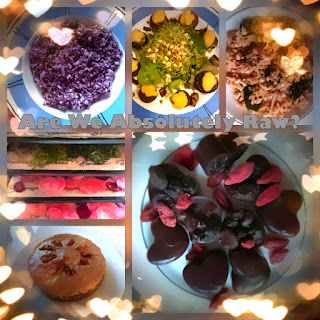Your Own Scientist
If most of us are interested in answering questions and acquiring knowledge concerning the observable universe, then science must surely be important to us? We’re curious beings, ambitious to know and understand more than we did before and science provides us with both the means to investigate the world, as well as the ensuing results that impact so significantly on what we believe and how we behave. If you think I may be building science up only to knock it down.., no, absolutely not. I’m definitely a fan.
But there is something I would like to question which is less about science itself, and more about our relationship with it. Have you heard of opiorphin? Possibly not, and if you were reading any scientific papers prior to 2006 then definitely not; there was no such thing. Well, actually that’s hugely inaccurate, it’s likely to have been in existence for … who knows? Thousands of years? But if it hasn’t been discovered, does it exist? (I still don’t know if a falling tree makes any sound if there is no-one present to hear or record it). Learning about opiorphin is a bit of an ‘aha’ moment. Have you ever inadvertently bitten any part of your mouth whilst eating and felt the excruciating pain of sharp teeth clamping down on delicate flesh? Have you also noticed that the pain is very short-lived? This is the magic of opiorphin. It’s a compound in human saliva that acts as a potent pain-killer. Did you know that? I’m torn between fascination for this new fact and a slight sense of disappointment that I needed scientific ‘proof’ to know about something that I was already directly experiencing. What else do I ‘know’ but refuse to believe due to lack of scientific evidence? Opiorphin was discovered as recently as 2006. Why so late? There are multiple reasons for the timings of research ranging from availability of new and increasingly precise equipment and methods for testing, to motivation for carrying it out at all! Is human saliva difficult to test, or is it just not interesting or profitable enough?
The latter point merits some emphasis. Science has the power to really shape our world, our beliefs and our experiences of life, so what do we do about ‘missing information’? If the evidence is not there, must we rule out the existence of that which interests us? Let me explain. As an enthusiast of natural, mostly raw food I spend some considerable time looking for supporting evidence for what I’ve experienced personally as an additional means of enthusing others who are looking to make changes. Such evidence though is minimal at best. There’s rarely an imperative to carry out the relevant research, so it simply isn’t there.
And even when there is associated research, it can be further complicated by conflicting evidence where vested interests influence the nature of the research carried out and, even more worryingly, sometimes build in a degree of ‘creativity’ in the publication of the results! This is an area where science fails; when it’s in the hands of those who wittingly or unwittingly steer or manipulate research and results.
But maybe we’re missing something that would make a difference in our quest for understanding; have we considered that we’re all scientists? How did we as a race discover that certain natural foods are of great benefit to us, whilst others are poisonous? Through personal (or group) trial and error which, at one time, was the only available means of testing. But this style of testing, albeit crude and lacking the rigour we associate with current methods, had something that modern science lacks, namely holism. It is the areas of natural food and health that particularly spark my interest and it is here that science quite often falls short due to a seemingly obsessive desire to break everything down to its smallest components and test them in isolation, leading to results that fuel newspaper headlines about, for example, dangerous vitamins. I’m thinking particularly about research conducted on vitamins A and E, not together, in fact neither of them in conjunction with anything else and this is why the results were unsatisfactory or arguably irrelevant. Who has a meal of just one vitamin or even one single plant? Nature works synergistically; multiple elements working harmoniously with each other, and in this regard it could be argued that it is science that is crude, crude in its methods of investigation. We are part of nature with its instinctive understanding of synergy and balance, and we can know what works for us and what doesn’t even when, on occasion, there is ‘evidence’ to support the opposite case. Maybe there’s profit to be gained from this ‘evidence’? Maybe there’s a possible protection of interests involved? And anyway, is evidence absolute proof? Of course it isn’t! Science would be deadly boring if each piece of evidence represented the end of the road for each examined hypothesis. In reality, science is much more exciting, dynamic and constantly updating, but it can only ever offer what our current means of testing, and the will of those carrying out the tests, can deliver on.



Comments
Post a Comment